CBAM - Carbon Border Adjustment Mechanism, a policy of the European Union (EU) to impose carbon tax on imported goods from other countries - has been officially piloted by the EU for a transitional period from October 1, 2023 and fully implemented from 2026.
Investing in green technology is not just a responsibility
Dr. Nguyen Thi Tuyet Nhung, Lecturer at the School of Economics , Law and State Management, said that the Government and associations are implementing many practical support measures to help Vietnamese enterprises increase their competitiveness and penetrate more demanding markets. “Currently, Vietnam has issued regulations on carbon market development, in which the pilot phase lasts until the end of 2028 and will officially operate from 2029,” Ms. Nhung said.
According to her, businesses with standard emission measurement systems can use domestic carbon credits to partially offset CBAM obligations, thereby helping to reduce additional costs.
Ms. Nhung cited the World Bank's payment of carbon credits in Quang Binh as an example, turning the story of carbon credits from theory into reality, "cash on delivery".
The online discussion series "Talk GreenBiz - Green Growth Compass" is organized by Dan Tri newspaper in collaboration with the Green Future Fund (under Vingroup Corporation).
The aim of the chain is to contribute to promoting green journeys in daily life, raising community awareness and calling on each individual to take action today to protect the environment for future generations.
The talk show “From CBAM to Carbon Market - New compliance roadmap for Vietnamese enterprises” part of the series “Talk GreenBiz - Green growth compass” will be broadcast on June 23 on Dan Tri newspaper and its social media platforms.
"This opens up a great opportunity for Vietnamese businesses to truly invest in the environment, bringing significant financial benefits. This is a positive signal that the carbon credit market can soon operate effectively, with both supply and demand clearly," Ms. Nhung commented.
The carbon market will have a clear supply and demand. The demand will come from businesses that are required to account but cannot control their greenhouse gas emissions well. In this case, they will have to buy carbon credits to offset the excess emissions.
On the supply side, there are now many private entities investing in renewable energy projects such as wind power, solar power or smart city related programs, all of which have the potential to generate carbon credits. Environmental regulations force businesses to invest in science and technology to reduce emissions directly, instead of relying solely on credit trading.

Investing in green technology and reducing emissions is not only an environmental responsibility but also a smart business strategy (Photo: Tien Thanh).
The expert said this not only helps them comply with domestic regulations but also minimizes the impact of CBAM on export product prices.
Investing in green technology and reducing emissions is not only an environmental responsibility but also a smart business strategy, helping to improve the competitiveness of Vietnamese enterprises in the international market.
In addition, developing a domestic carbon credit market will help Vietnamese businesses have tools to manage and reduce emission costs. By participating in this market, businesses can buy or sell carbon credits to balance their emissions.
What do Vietnamese businesses need to do to "overcome" CBAM?
In the context of the global push to transition to a green economic model and sustainable development, Ms. Ho Thi Quyen, Deputy Director of the Ho Chi Minh City Investment and Trade Promotion Center (ITPC), said that the European Union has implemented CBAM to reduce greenhouse gas emissions and promote environmentally friendly production. This is not only a challenge but also an opportunity for Vietnamese enterprises to improve their competitiveness and meet international standards.
Compliance with CBAM is essential if businesses want to maintain and expand their market share in the European market. This mechanism requires businesses to be transparent in calculating carbon emissions throughout the production process, and to apply clean technology and environmentally friendly processes.
She emphasized that adapting to CBAM is not only the responsibility of management agencies but also requires initiative from businesses. The impact of this mechanism on the Vietnamese business community in general and businesses in Ho Chi Minh City in particular is huge.
Businesses need to invest in technological innovation, improve production processes, and build comprehensive emission management and reporting systems. The transition to green production not only helps individual businesses adapt, but also positively impacts the entire supply chain. When a supplier reduces emissions, associated businesses will also move closer to the goal of net zero emissions by 2050.
From an expert perspective, Dr. Nguyen Phuong Nam, General Director of Klinova Climate Innovation Consulting and Services Company, said that CBAM is posing many challenges for Vietnamese exporters. Emission reporting requirements are increasingly strict, data collection is becoming more complicated, while the level of competition is also increasing as European importers prioritize goods with low emissions.
He recommended that Vietnamese enterprises should proactively learn carefully about CBAM regulations, comprehensively review production processes and build a database on greenhouse gas emissions.
Inventorying emissions and determining the emission intensity of each product is a prerequisite for effective emission reduction planning. Some important solutions include increasing the use of renewable energy, optimizing technology and improving monitoring systems and verifying emission data.
Opportunities and challenges for Vietnam in the “CBAM era”
Dr. Mac Quoc Anh, Director of the Institute of Economics and Enterprise Development, Vice President and General Secretary of the Hanoi Association of Small and Medium Enterprises, said that CBAM can absolutely become a positive lever to encourage businesses to invest in green technology, emission transparency and sustainable development. “CBAM, viewed positively, is a push to force businesses to innovate towards green growth,” he said.
This person expressed the view that businesses must replace outdated production lines and reduce emissions by investing in energy-saving technology and using renewable materials. With the launch of the Carbon Credit Exchange in Vietnam, expected in 2025, businesses can sell the reduced emissions to have more cash flow.
“CBAM requires detailed emissions reporting, encourages businesses to improve digitalization capacity, use ERP software, ISO 14064… ESG investment funds and green credit are increasingly interested in businesses with a sustainable development orientation. Businesses that meet CBAM have the opportunity to access international capital at lower costs,” he said.
In the context of CBAM putting great pressure on export enterprises, especially small and medium enterprises, Mr. Mac Quoc Anh said that this group needs a "tailor-made" policy, due to the characteristics of SMEs lacking resources. He recommended policies that can be considered such as green credit incentives, creating preferential loan packages with low interest rates specifically for SMEs converting to emission reduction technology.
In addition, according to this person, the State can subsidize SMEs in hiring consultants and using carbon measurement software. He also proposed tax exemptions for green transformation enterprises, and corporate income tax reductions for 2-3 years for enterprises investing in clean technology.
In addition, according to him, it is necessary to develop a green technology ecosystem, connecting SMEs with startups and innovative businesses to access energy-saving and emission-reducing technology solutions. At the same time, the Government issued a set of Vietnamese CBAM criteria, shortening and simplifying CBAM criteria into a set of easy-to-understand and easy-to-implement guidelines for small businesses.
The ESG Vietnam Forum 2025 with the theme "Science and technology and driving force for sustainable development" will be a place to exchange and discuss important issues such as: How can businesses apply science and technology to improve the environment and limit negative impacts on the environment?
How can businesses solve social problems such as poverty reduction, improving the quality of education and health care, and creating sustainable employment opportunities? How can science and technology enhance transparency, accountability, and governance efficiency?
The highlight of the Vietnam ESG Forum 2025 will be the Vietnam ESG Awards 2025 - a prestigious title honoring businesses that have made outstanding achievements in implementing ESG in science and technology towards sustainable development.
The organizers of the Vietnam ESG Forum believe that honoring businesses with good execution will inspire and motivate other businesses to act for a better future.
Source: https://dantri.com.vn/kinh-doanh/cbam-ap-luc-hay-cu-hich-de-doanh-nghiep-viet-chuyen-doi-xanh-20250620120231472.htm




![[Photo] Da Nang: Hundreds of people join hands to clean up a vital tourist route after storm No. 13](https://vphoto.vietnam.vn/thumb/1200x675/vietnam/resource/IMAGE/2025/11/07/1762491638903_image-3-1353-jpg.webp)







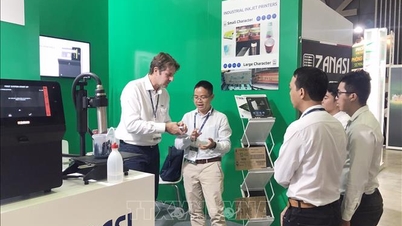










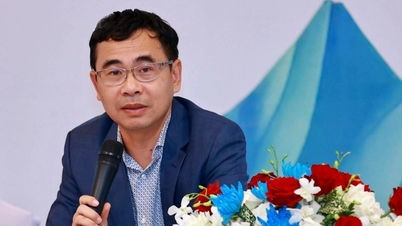









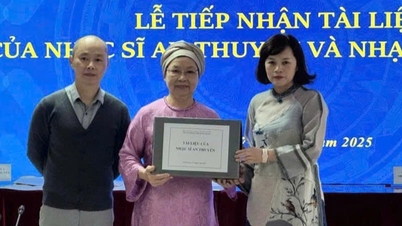
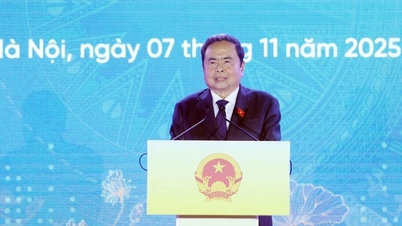



















































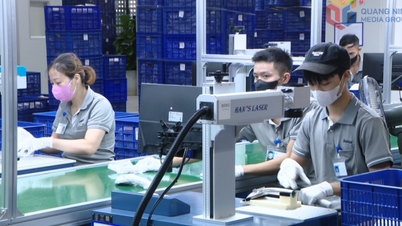

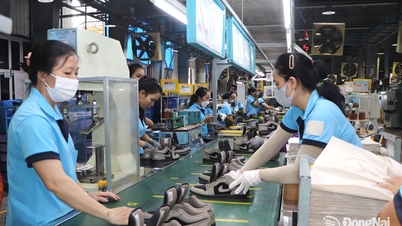



















Comment (0)